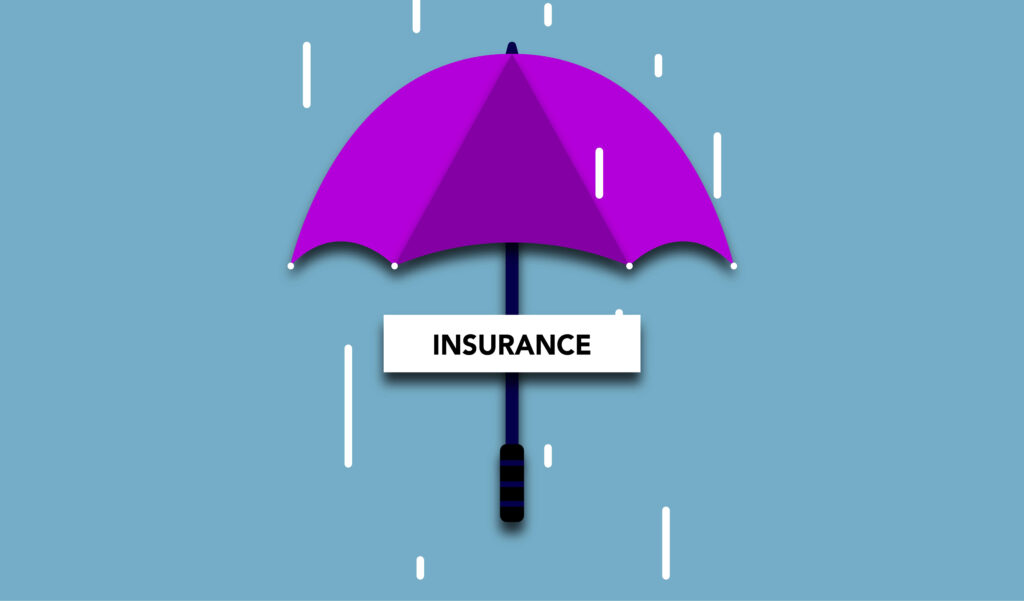Topics at a Glance
Like this page ? share it with your friends !
Introduction:
In this world of uncertainty, planning for the future is the one thing that should be considered an essential need. And when we talk about future planning, many things will hit us, one among them is insurance, which stands as a resource to give a secure financial life for your loved ones even in your absence. However, finding good and trusted insurance companies became a handful for us these days which are filled with complicated procedures and the daunting complexity to sign up for single insurance.
Are you willing to risk your family's financial future by not having life insurance?
But only some of these complications are for our Aarvy Palette readers! Because we are back with full details on insurance so that you’ll be a step ahead in your life to protect your loved ones with the best security. And I’m also sure that in this blog, you going to get almost every question you have and in case if you’re entirely new to the topic of insurance then you’ll be getting answers from the top 20 questions that are mostly asked by many of the people.
From knowing the different types of policies and how to take up the correct policy as per your choice and situation, everything is exclusively for our readers. After knowing make sure to subscribe to us to learn about many things to make your life better!
So have a hot cup of ramen, relax, and get ready to suit up to dive into the world of insurance! By the end of this blog, you will get to know what kind of policy you need to take up and what makes your family safe even in your absence, no! this is not like we are talking about bad things, it’s about having an insightful view towards your loved ones for a secured future. So what’s late, let’s dig into this treasure!

Understanding Life Insurance
What is life insurance, and how does it work?
Life insurance is the procedure of having a bond between an individual and an insurance company, that provides financial security to their loved ones during the policyholder’s death.
In this policy, the policyholder will pay the regular premiums to the insurance company, and in exchange, the company needs to pay a death benefit to the policyholder’s loved ones in case of an untimely death. This benefit is typically a bulk amount that can be used to cover the expenses of funeral costs, debts, and ongoing expenses of the policyholder’s nominee.
Why do I need life insurance? (tomorrow need to rephrase from here)
Life insurance is having financial security, so it is advisable to take up an insurance policy for a better future. As we all know money runs the world, and you need to make sure that your loved ones need financial support even in your absence.
Upon receiving the benefits from the respective insurance company, the amount can be useful to cover the funeral expenses, debts, or ongoing living costs of your family or loved ones.
It’s really peaceful knowing that you have arranged a secure place for them even in your absence. Without life insurance, the chances of your loved ones struggling financially in the event of your passing are high than we expect.

What factors affect the cost of life insurance premiums?
Age, health, lifestyle choices, career, and type and amount of coverage required are a few aspects that can affect the actual cost of life insurance premiums. Older people or those with illnesses, risky employment, or more extensive coverage needs will often pay higher premiums than younger, healthier people with lower-risk professions and lifestyle behaviors.
How much life insurance coverage do I need?
The amount of coverage you need will be dependent on the set of needs and requirements you have. For example, the coverage will be given based on the premiums you have paid. Therefore, the premium can be selected based on your earnings, commitments, cost of living, assets, and the financial needs of your loved ones.
If you want your loved ones to be secured for a long time, you need to pay the premium for so long or in bulk amount. And one of the popular thumb rules is to have coverage equivalent to 10-12 times your yearly salary, as I mentioned before, based on the specific needs you need to choose the right amount to pay for the insurance.
You can take help from a financial advisor on these, they’ll calculate your expenses and will suggest you a suitable insurance policy for you.

Types of Life Insurance Policies:
As I said earlier, one of the major aspects of future planning and security is Life Insurance for your loved ones. There are different types of insurance policies for all mediums of families and individuals. You can choose one among them that meets your needs and requirements. Now let’s discuss different types of life insurance along with their pros and cons!
What is Term Insurance policy?
Term life insurance is one of the most affordable life insurance policies when compared to other policies. This policy usually ranges between 5 to 10 years, in case the policyholder will die within this term of the policy the amount will be given to the beneficiaries. Whereas if the policy is completed and the policyholder is still alive the coverage will come to an end.
Pros:
- Known for its affordable quality and providing temporary security when compared to the other policies.
- Easy to understand and purchase within the budget.
- Used to cover specific needs like the payoff of funeral expenses or financing for a child’s education.
Cons:
- Once the policy plan ends, the coverage ends as well
- The chance of getting the premiums increased is high, in case the policy is renewed.
- The cash value does not increase with time
Who Needs This:
Since this is a short-term insurance policy, suitable for the ones who are looking for coverage during a specific period of time such as newly started families with children or individuals with an agreement with the lender

What is Whole Life Insurance policy?
Whole life insurance is designed to provide coverage throughout the whole life. The policyholders need to make sure that all the premiums are paid. And the cash value will grow with time which they can use to pay more premiums or can be borrowed against.
Pros:
- Life-long coverage for the injured person
- Increase in the cash value along with the time which can be considered retirement income.
- Maintains a fixed value for the premiums without increasing over time.
Cons:
- Since the coverage is for lifelong, it is more expensive than term life insurance.
- The cash value will not grow as much as other investment options.
- The chances of death benefit keeping up with inflation over time is less.
Who Needs This:
Useful for the ones seeking lifelong coverage and an investment option and also afford to pay higher premiums.
What is Universal Life Insurance policy?
If you are looking for permanent life insurance with flexibility in premiums and death benefits then the best option for you is universal life insurance. This will provide a combination of death benefit and savings account that earns you interest. The policyholder has the ability to adjust the premium and death benefit amount over time.

Pros:
- Flexibility in both premium payments and death benefit amounts.
- Provide a combination of savings account and death benefit with tax-free interest earnings.
- Policyholder’s ability to access the cash value of the policy.
Cons:
- Since the flexibility is there, the chances of being complex are higher when compared to other policies.
- The cash will not grow as much over time as much as other options.
- In case of not managing the policy is properly, it may get lapsed and the policyholder will not get paid.
Who Needs This:
People who are looking for flexibility in premiums and death benefit amounts along with the will to manage the policy.
What is Variable Life Insurance policy?
Variable life insurance is also permanent life insurance but similar to mutual funds that allow policyholders to invest in sub-accounts. The performance of those sub-accounts will define the value of the death benefit and cash value of their policy.
Pros:
- Policyholders can have the chance of getting higher investment returns.
- Different options to select from a variety of investment options.
- Expect the chance of getting tax advantages.
Cons:
- More expensive when compared to the other types of life insurance.
- The policy value decreases in case of the poor performance of the sub-accounts.
- The policyholders need to make sure to actively manage the policy.
Who Needs This:
The one who wants to invest in the stock market and is willing to accept more risk.
What is Guaranteed Issue Life Insurance policy?
As we are all aware that before signing up for any type of policy we need to undergo certain procedures, one of which is a medical exam or health questions to be answered. In this Guaranteed issue of life insurance, we can skip that procedure, which means anyone with pre-existing medical conditions who are not eligible for other insurance policies can sign up for this policy. This policy usually has a lower coverage amount and higher premiums than other types of policies.

Pros:
- Not required to go through a medical exam and health questions.
- Easy to apply for the policy and obtain the coverage
- The best option for those with pre-existing medical conditions or high-risk lifestyles.
Cons:
- Higher premium amount and lower coverage in return when compared to other life insurances.
- Not the best option for healthy individuals who can qualify for traditional life insurance policies.
Who needs guaranteed issue life insurance?
This is only a good option for the ones who are not qualified for the other insurance types and the ones with preexisting medical conditions. Need to have a clear idea of what we are paying as premiums and how much we going to get as coverage because known for the quality of the highest premiums and lower coverage compared to other types of life insurance.
What is Accidental Death and Dismemberment Insurance policy?
Accidental death and dismemberment (AD&D) insurance is specially designed as the security policy for sudden accidental death or serious injury. Based on the severity of the injury the coverage will be given please be aware that this policy only covers accidents and not any natural causes of death. A higher amount will be paid for more serious injuries or death.

Pros:
- Has lower premiums than other traditional life insurance policies.
- Chance of getting higher coverage amount than the other policies
- Benefits can be used for medical expenses and other expenses associated with serious injuries.
Cons:
- Provides only limited coverage for accidental death and injuries.
- The coverage amount will not cover all the expenses associated with the injuries.
Who needs accidental death and dismemberment (AD&D) insurance?
AD&D insurance is for individuals who could not get additional coverage through other traditional insurance policies. Provides good financial support for medical expenses and other serious injuries. However, it is advisable to check everything beforehand whether the coverage amount is sufficient for your needs and requirements.
What is No Exam Life Insurance?
The No exam life insurance is pretty explanatory, which means this policy does not require any medical exams or health questions to be answered. The applicant just needs to provide the age, gender, and other important factors that are necessary for the signup. This makes the process of getting life insurance without the trouble of going through medical exams.

Pros:
- No need to go through the medical exam and health questions
- Quick and easy application process when compared to other insurance policies
- The best option for individuals who are seeking to get coverage quickly.
Cons:
- Expensive premiums and lower coverage than the other traditional insurance policies
- Not suitable for individuals with pre-existing health conditions.
Who needs no exam life insurance?
No Exam life insurance is a good option for healthy individuals who wants to get coverage quickly and without the trouble of going through medical exams. It is required to consider the cost of premiums and the benefit amount you are going to acquire. Individuals with pre-existing medical conditions are not eligible for the policy and they can go for a guaranteed issue policy.
Choosing the right life insurance
As discussed from the beginning, life insurance is one of the most important investments for a secure financial future. As well as having insurance is important, choosing the right insurance policy also plays a vital role in your insurance journey. Let’s see what factors should be kept in mind while choosing an insurance policy:
Consider your financial situation:
The basic thumb rule while choosing a policy is to evaluate the financial situation your earnings, debts, living expenses, and the premium amount you can handle.
Determine the type of coverage you need:
There are varied types of life insurance policies available in the market. Everything has its own pros and cons. So while signing up for any type of insurance policy, take a minute and evaluate the premiums you need to pay and the coverage you are going to get. After that, you can tally which policy is really worth it.

Compare policies and providers:
Researching and comparing is the best thing you can ever do while buying or signing up for anything. With the help of a financial advisor, get your research done and decide on the insurance policy that suits you along with the premiums, benefits, and customer service.
Choose a reputable provider:
The insurance company, that we going to sign up for the policy matters too. Not many companies will do their job rightly when providing the coverage amount. Therefore, it is advisable to choose a reputable provider for your insurance policy. Research for the high ratings from independent and trusted rating agencies.
Review the policy details carefully:
Before signing any policy they will provide the terms and conditions and clear details on how the respective policy works along with premiums and the coverage amount. Therefore, make sure to go through everything carefully to have a safe and amazing policy-buying experience.
What is a beneficiary, and how do I choose one?
The term Beneficiary in an insurance policy is none other than your loved ones. When you signup for the policy you’ll be asked to choose a beneficiary to receive the coverage amount in your absence. It could be your family members like your spouse, children, or other dependents who will get most affected in your absence financially. You can also choose multiple beneficiaries or a contingent beneficiary as a backup in case the primary beneficiary predeceases you.

Pros:
- Life insurance is a resource to ensure the financial safety of your loved ones after you’re gone.
- It is in your hands what kind of policy to choose and the amount of coverage that fits your loved ones’ needs.
- Insurance policies can be tailored to fit your needs, requirements, and your budget.
- Many policies offer varied additional benefits such as cash value increment and living benefits.
Cons:
- Life insurance might become a burden for someone who is with health conditions and older individuals.
- Many policies are covered with limitations and restrictions regarding the coverage amount.
- Chances of choosing the wrong policy or provider can result in insufficient coverage amount or even financial loss.
Who Needs This?
This is one of the investment options, therefore those who are with dependents or loved ones who would be financially affected by their death can consider purchasing the suitable policies. Even though, you don’t have anyone but having life insurance will provide financial protection for loved ones and leave a legacy for your dear ones.
Managing Your Life Insurance Policy
Signing for an insurance policy, and choosing the right one is one vital part whereas managing the selected insurance policy also plays an important role in an insurance policy. Policyholders need to make sure to manage the policy premiums carefully in order to receive the coverage amount clearly without any complications. They need to make sure to pay the premium within the given time limitation for a stress-free process. In this section, we will give you tips on managing a life insurance policy.
What happens if I miss a life insurance premium payment?
Sometimes times get difficult which is common in human life. But missing premiums is not a good idea. In case missing the payment of a premium might result in the lapse of the insurance policy which means you’ll no longer receive the coverage amount from the respective coverage provider. However, there will be a grace period of approximately 30 days for most insurance policies, which allows you to make a late payment without losing the coverage amount. If you miss the grace period you might need to restart the application to reinstate the policy or pay additional fees.

Can I change my life insurance policy after I buy it?
Yes, you can make changes to your policy after you purchase it. For example, you should increase your coverage amount or change your beneficiary. However, making changes to your policy may result in changes to your premium amount. It is necessary to review the details of your policy and discuss them with your insurance provider or financial advisor to understand the potential impact of the changes.
What is a life insurance settlement option?
The settlement option is a process of receiving the coverage amount or death benefit from the respective life insurance policy. Instead of receiving a bulk sum amount this option will allow you to receive the payments over time. The common settlement options include the interest-only option, which pays the interest earned from the benefit, and the fixed period option which gives the death benefit over a set period.









Thank you for providing us this info..!
Nice content..!